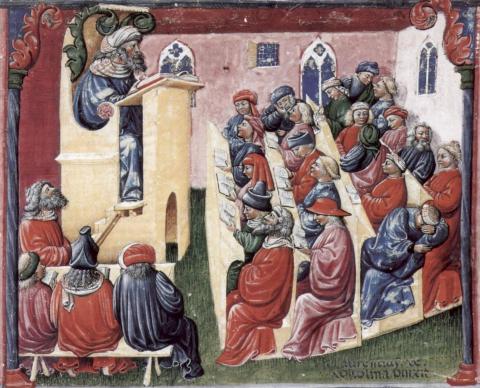"I will tell you, Gentlemen, what has been the practical error of the last twenty years. . . . It has been the error of distracting and enfeebling the mind by an unmannerly profusion of subjects; of implying that a smattering in a dozen branches of study is not shallowness, which it really is, but enlargement, which it is not."—John Henry Newman, The Idea of a University
We have been spending a lot of time worrying about what college students are majoring in and not nearly enough time caring about what they are learning. At least that’s my take on the most recent incarnation of the great “Crisis in the Humanities” debate.
You know the one I mean. It starts out with some great university study or influential committee report bemoaning the fact that nobody is majoring in history and philosophy any more. It continues with a discussion about how anthropology majors don’t get jobs after college, and a counter discussion about how employers really want critical thinking and communication skills. And so on. It’s a jolly good show, but whole debate misses one very important point, which is that you don't have to major in something to learn a lot about it in college. That is the whole point of general education.
Let me clarify my own relationship to this question. When I am not playing a political pundit on the Internet, I am a humanities (English) professor and senior administrator at a university named for John Henry Newman--the inventor of general education. I have been working on general education reform for most of my professional life--unsuccessfully for many years at previous institutions, and much more successfully in my current position, where the faculty spent three years crafting a completely new general education program modeled largely on the principles found in The Idea of a University.
In almost twenty years of thinking about the nature of general education, two things have become very clear: 1) well-designed general education programs have the potential to address some of the most crucial issues that higher education faces in the coming years; and 2) we, as a nation, have a very long way to go before that potential can be realized.
In most colleges and universities in the United States, the general education curriculum contains at least as many hours—and often more hours—than a typical humanities major. This means that the core can teach all of the critical thinking, communication, and other skills that, say, an English degree can teach still leave plenty of room for major coursework in nursing, accounting, or graphic design. All this takes, in theory, is a focused general education program with as much integration and intentionality as a typical college major.
In practice, it almost never works that way. Core curricula have become the most ossified, fragmented, and contentious programs in most colleges and universities in the United States. Rather than creating integrated and dynamic educational experiences for their general education students, most colleges have settled for a few highly fragmented distribution requirements—“Intro to Everything”—that connect poorly with each other and not at all with a coherent plan of instruction.
And professors defend their general education “turf” as fiercely as people once defended political patronage jobs. Whenever anybody tries to reform the core curriculum, the CAVEs (Colleagues Against Virtually Everything) come out in force to swear that the integrity of the entire university depends on their discipline being part of the required core—that somebody who has not had “Early Mesopotamian Civilizations” or “Caribbean Literature in Transition” can never really be called “educated”--at best they are potty trained.
This does not mean that the best full-time faculty are assigned to the general education courses, of course. Students who don’t manage to “get their gen-ed’s out of the way” at a community college are often taught by inexperienced graduate assistants, by underpaid adjuncts with enormous course loads, or by reluctant faculty in large (and usually very dark) lecture halls. There is very little in contemporary general education that is conducive to critical thought, communication, or a lifelong love of learning.
And this, I believe, is the real crisis in the humanities and the liberal arts. The assumption that one must major in something to learn about it is ridiculous on its face. And the belief that one must choose between a liberal arts education and professional training is dangerous. These assumptions are true only because we have allowed them to become true. We have wasted the potential that John Henry Newman saw in general education programs by allowing them to become, in his words, "an unmannerly profusion of subjects" that provides "a smattering in a dozen branches of study." The perpetual “crisis in the humanities” will vanish forever, I believe, once we make up our minds to do otherwise.
